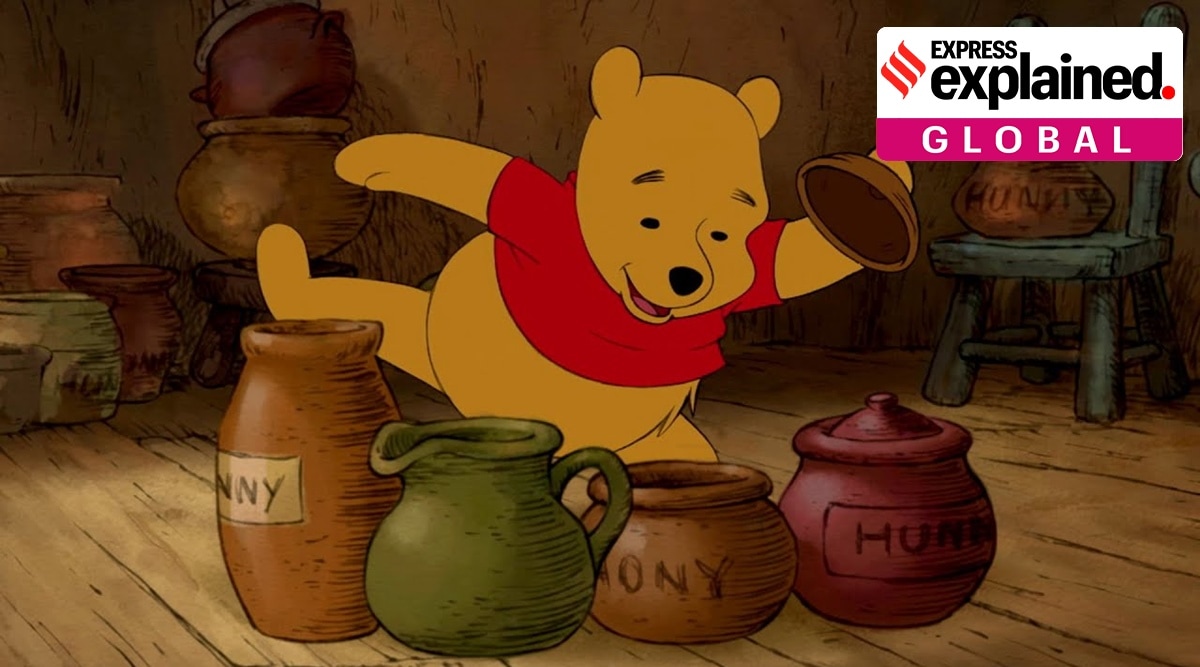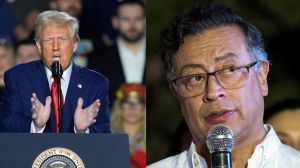The odd Chinese sensitivity towards Winnie the Pooh and why its new film won’t release in Hong Kong
Over the years, President Xi Jinping has been compared to the beloved fictional bear; it is also used as a symbol of resistance to Chinese authoritarianism
 Although the clampdown on Winnie the Pooh has never been clearly explained by the Chinese censors, many believe it is due to the widely popular memes that compare the bear to the country’s President Xi Jinping (Photo: YouTube/screen grab)
Although the clampdown on Winnie the Pooh has never been clearly explained by the Chinese censors, many believe it is due to the widely popular memes that compare the bear to the country’s President Xi Jinping (Photo: YouTube/screen grab) Public screenings of a slasher movie featuring the fictional character Winnie the Pooh were abruptly cancelled in Hong Kong last week, its distributor announced on Facebook with “great regret”.
Written, directed, and produced by the British filmmaker Rhys Frake-Waterfield, the micro-budget R-rated movie, ‘Winnie the Pooh: Blood and Honey’, shows the beloved, pant-less, anthropomorphic bear as a bloodthirsty and revengeful creature, who is on a rampage killing a group of young women.
Responding to an email sent by the Associated Press, the movie’s distributor VII Pillars Entertainment said “it was notified by cinemas that they could not show the film as scheduled”. Notably, the distributor didn’t know the reason for the cancellation, the report said.
The movie’s central character, Winnie the Pooh, isn’t unfamiliar with censorship in China as authorities have been targeting him for around a decade now. Before ‘Winnie the Pooh: Blood and Honey’, another movie, ‘Christopher Robin’, featuring the bear was banned in the country in 2017.
Why does Winnie the Pooh keep running into trouble in China?
Although the clampdown on the bear has never been clearly explained by the Chinese censors, many believe it is due to the widely popular memes that compare Pooh to the country’s President Xi Jinping.
It all began in 2013 when President Xi, during his visit to the United States, was clicked while walking alongside then President Barack Obama. The photo went viral on the Internet as it appeared “next to an image of Pooh — meant to mirror the portly Chinese leader — alongside Tigger, representing the tall, slim US president,” The Guardian said in a report at the time.
The following year, after President Xi was photographed during an awkward handshake with then Japanese Prime Minister Shinzo Abe at the Asia-Pacific Economic Cooperation Summit in Beijing, the Chinese leader was again likened to the fictional bear, The Guardian report said. The report likened Abe to the “pessimistic, gloomy donkey Eeyore”.
Another meme that went viral, and was the subject of international media reports, showed an image of President Xi popping his head out of the roof of his limousine car to inspect troops, juxtaposed with a photo of a toy Winnie the Pooh, who was popping out of his own little car.
Chinese authorities soon began blocking memes and photos that mocked President Xi. In 2017, the censors even briefly banned the words ‘Winnie the Pooh’ on both Weibo, a Chinese microblogging website, and Baidu, a local search engine, The Washington Post reported at the time.
Then in 2018, the release of the ‘Christopher Robin’ movie was stopped in the country, and in the same year, authorities banned the website of US television station HBO after comedian John Oliver “repeatedly made fun of the Chinese president’s apparent sensitivity over comparisons of his figure with that of Winnie,” The Guardian said in another report.
Over the years Pooh has become a symbol of resistance in China.
Pooh has been used not only to ridicule President Xi but also to signal dissent against the country’s authoritarian regime. For instance, in 2022, Disney stores in Japan began stocking t-shirts, mugs and hoodies featuring a frowning Pooh gazing at a blank sheet of white paper, which was a symbol of massive protests in China against censorship and the government’s zero Covid policy, media reports said.
Speaking to the US radio station NPR, Rongbin Han, an associate professor of international affairs at the University of Georgia, said it’s not the fictional bear that is “objectionable to Xi and the authoritarian regime, but the fact that critics are using the bear as a stand-in to denounce the government’s policies”.
He added that although images or objects looking like Pooh are allowed across the country, on the Internet things are quite different as censors don’t want any kind of dissent against the ruling regime. “Anywhere that online dissident groups are mobilising, that’s what triggers the nerve of this state,” he said.
- 01
- 02
- 03
- 04
- 05






































